Adaptive Fitness: Exercise Tips for Individuals with Limited Mobility
Maintaining physical fitness is crucial for overall health and well-being, regardless of mobility limitations.
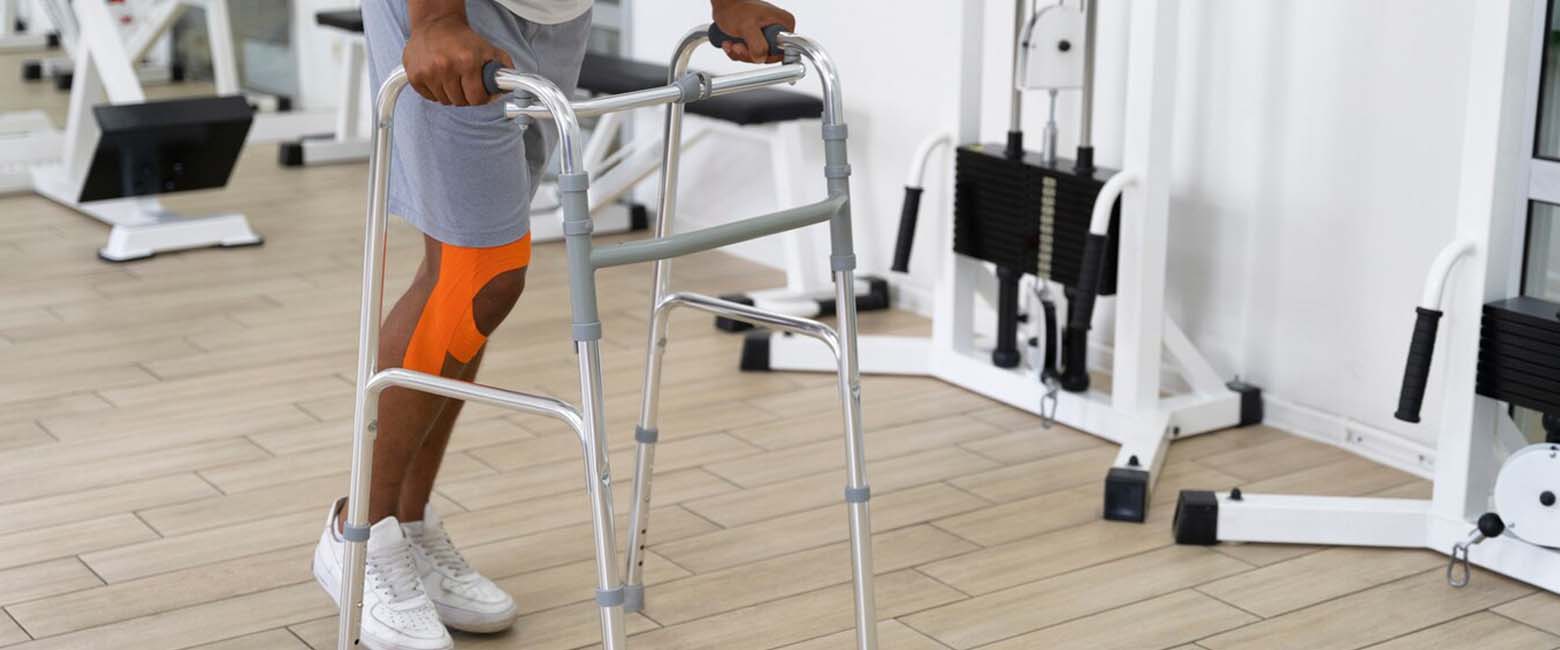
Maintaining physical fitness is crucial for overall health and well-being, regardless of mobility limitations. Adaptive fitness focuses on modifying exercises and activities to suit individual needs and abilities, making physical activity accessible and enjoyable for everyone. This blog post offers practical tips and guidance for individuals with limited mobility who want to incorporate exercise into their routines.
Understanding Adaptive Fitness:
Adaptive fitness recognizes that traditional exercise methods may not be suitable for everyone. It emphasizes finding creative ways to modify exercises, use adaptive equipment, and create personalized fitness plans that cater to individual abilities and goals.
Benefits of Adaptive Fitness:
Improved Physical Health: Regular exercise can improve cardiovascular health, strength, flexibility, and balance.
Enhanced Mental Well-being: Physical activity can reduce stress, improve mood, and boost self-esteem.
Increased Independence: Improved physical function can lead to greater independence in daily activities.
Reduced Risk of Secondary Conditions: Exercise can help prevent secondary health issues often associated with limited mobility, such as pressure sores, muscle atrophy, and cardiovascular problems.
Tips for Getting Started with Adaptive Fitness:
Consult with a Healthcare Professional: Before starting any new exercise program, consult with your doctor or a physical therapist. They can assess your individual needs and recommend appropriate exercises.
Find a Qualified Trainer: If possible, work with a certified adaptive fitness trainer who has experience working with individuals with mobility limitations.
Start Slowly and Gradually Increase Intensity: Begin with gentle exercises and gradually increase the intensity and duration as your strength and endurance improve.
Focus on What You Can Do: Focus on your abilities rather than your limitations. There are many ways to adapt exercises to suit different needs.
Use Adaptive Equipment: Explore assistive devices and adaptive equipment that can make exercise more accessible and effective. This might include resistance bands, adapted weights, or specialized exercise machines.
Find Activities You Enjoy: Choose activities that you find enjoyable and motivating. This will make it more likely that you'll stick with your exercise program.
Listen to Your Body: Pay attention to your body and rest when needed. Don't push yourself too hard, especially in the beginning.
Examples of Adaptive Exercises:
Chair Yoga: Modified yoga poses performed while seated in a chair.
Water Aerobics: Exercises performed in a pool, which provides buoyancy and reduces stress on joints.
Resistance Band Training: Using resistance bands to strengthen muscles.
Weight Training with Adapted Equipment: Using adapted weights or weight machines to build strength.
Key Takeaway:
Adaptive fitness is about finding ways to make exercise accessible and enjoyable for everyone. By following these tips and working with qualified professionals, individuals with limited mobility can achieve their fitness goals and improve their overall health and well-being.
Related
-

Enhancing Sleep Quality for Wheelchair Users
-

Finding the Perfect Health Service Provider: Tips for Elderly Care
-
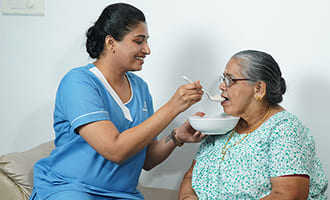
Top Qualities to Look for in Elderly Carers in Mumbai
-

Best Elderly Care Apps for Seniors in 2025
-

Top Benefits of Visiting a Physical Therapy Clinic
-
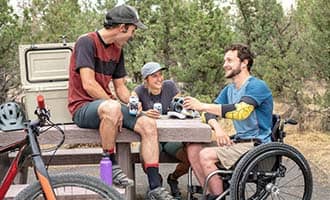
Rolling Towards Peace
-
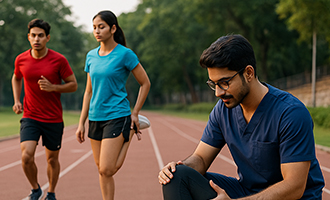
Sports Injury Prevention Strategies for Mumbais Active Youth
-

Embracing Holistic Wellness: A Guide for Seniors and Individuals with Mobility Needs
-
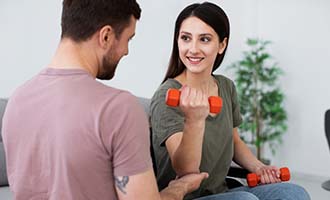
The power of Pilates
-
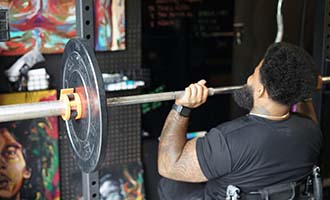
Physiotherapy tips for home
-

Choosing the Right Care Taker Services in Mumbai for Your Needs
-
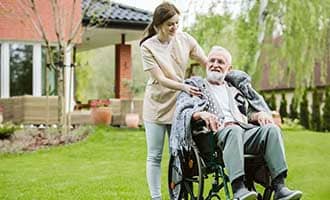
Benefits of Hiring a Companion for Elderly Care in Mumbai
-

Why Routine Health Check-Ups Matter for Wheelchair Users
-
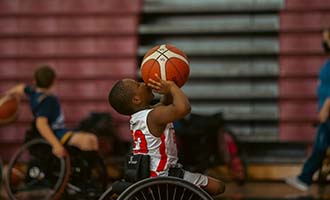
Get in the game
-

Understanding the Benefits of In-Home Elder Care for Loved Ones
-
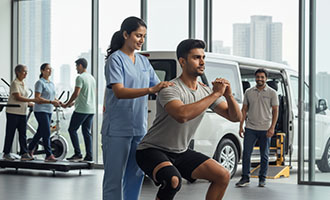
How Sport Rehabilitation in Mumbai Helps Athletes Bounce Back Stronger
-

Rollin' in the Greens.
-
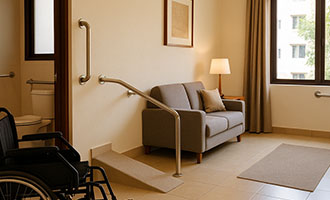
How Accessible Homes Create Truly Independent Living
-

Understanding Spina Bifida: Symptoms, Types, and Early Detection
-

Focus your mind to stay healthy
-

The Ultimate Guide to Choose the Right Walking Devices for Adults
-

The Role of Hydration in Health and Wellness
-

Wheels of Support
-
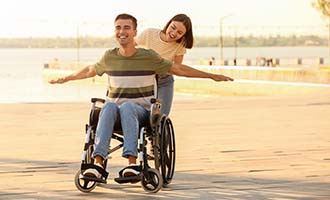
Beginners, chair cardio is the way to go!
-

Dating with a Disability: Navigating Love, Relationships, and Mobility Challenges
-

Best Physical Therapies in Mumbai for Post-Operative Recovery
-
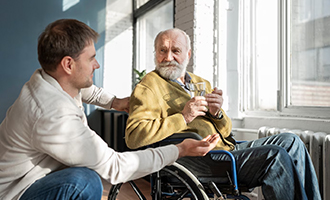
The Importance of Wheelchair Assistance for the Elderly
-

Fashion Forward: Style Tips for People with Limited Mobility
-

How to Choose the Right Sports Rehab Treatment Clinic Near You
-
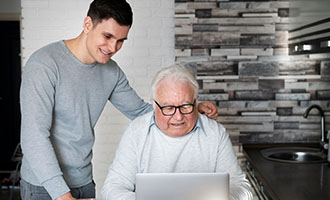
In-Home Health Care Services in Mumbai Using the MobiCrew App
-
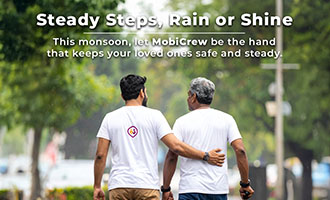
Rolling Through the Rain: A Monsoon Safety Guide for Wheelchair Users
-

How to Help People with Disabilities: A Guide to Inclusive Practices
-

Best Wheelchairs for Senior Citizens in Mumbai Buyers Guide
-

Innovative Walking Assistance Devices for Adults
-

Breathing right can change your life
-
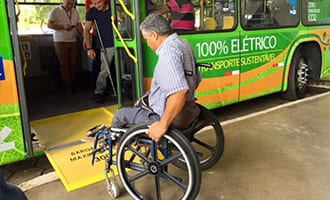
How to Choose Reliable Mobility Services at Home in Mumbai
-

Beyond the Wheelchair: Why Emotional Support Is Just As Important As Physical Help
-
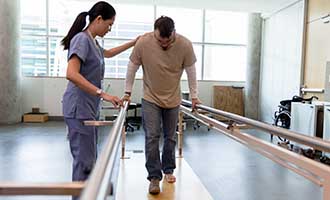
Tips to Choose the Right Physical Therapist for Your Needs
-
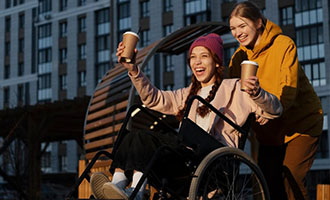
Tips To Empower People with Limited Mobility
-

Stay in shape with Yoga
-

Slippery Roads Ahead: How to Keep Elderly Loved Ones Safe This Monsoon









